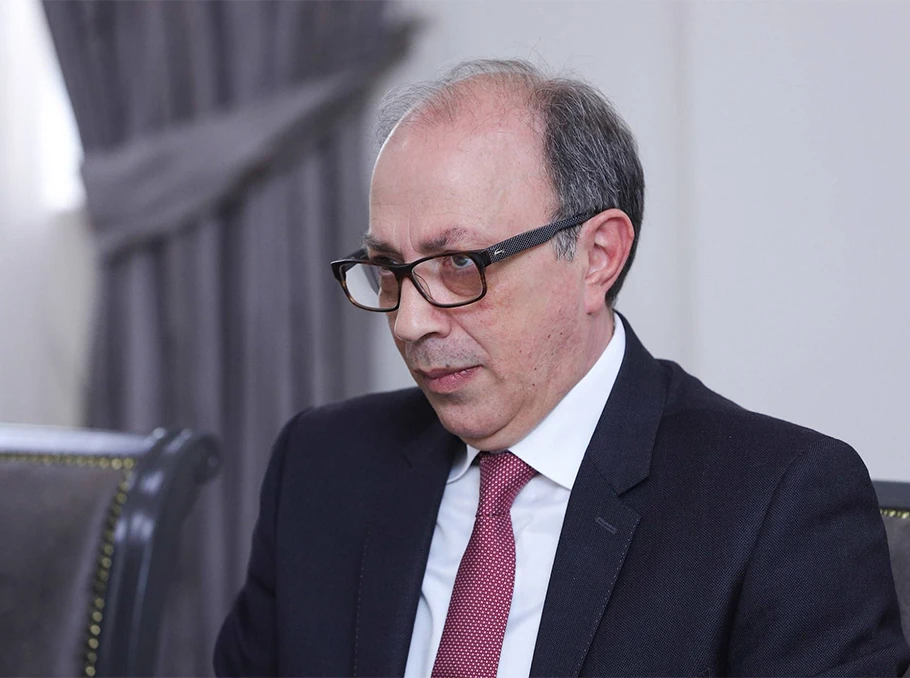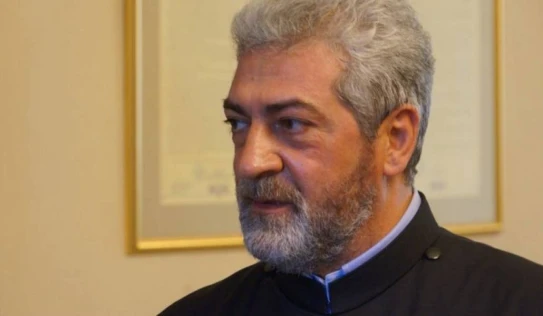We present the article of Ara Ayvazyan, founding member of the Pan-Armenian Council of Diplomats, former Foreign Minister of Armenia, regarding the recent interview of Azerbaijani President Ilham Aliyev on Russian state television.
"The interview given by Ilham Aliyev to the Russian state television the other day was aimed at different audiences: Russia, the West and its immediate neighbors. The domestic analytical and expert community was mostly focused on confirmations related to Armenia.
However, it is important to address the other statements as well and try to find answers to the increasingly dangerous situation around us.
First, the leader of Azerbaijan emphasizes that "the world has radically changed, and the rules adopted after the Second World War no longer apply.
The power factor has come into play again. And countries that have understood this in advance can feel safer." to advance.
Throughout history, many countries have faced the challenge of force, whose successful and failed experiences should have become navigation guidance for Armenia.
Aggressive power politics and therefore expansionist ambitions are most likely to succeed when they are not met with counterbalancing and deterrent resistance capable of inflicting severe and irreparable losses on these ambitions.
Second. To the pressing question about the commitment of Azerbaijan's alliance obligations towards Russia, Aliyev answered that "we always treat our alliance obligations seriously and will continue to do so in the future."
At the same time, he emphasizes that Azerbaijan is the only country in the world that is an ally of both Russia and Turkey, that is, "our ally obligations are diversified, and we will decide based on the situation."
Despite his arrogant criticism of France ("failed state", with which Azerbaijan had the closest cooperation before Macron's presidency), despite his harsh remarks to the EU and the USA ("Armenia's patron State Department", Biden, who violated the balanced approach to the countries of the South Caucasus and "imposes so-called 'aid'" in contrast to Trump, who is "in the same boat as us (Azerbaijan and Russia) in defense of traditional values"), he offers a kind of deal to the West: to consider Azerbaijan, as it has done in the past, as a reliable and valuable mediator and platform for Russia-West dialogue, instead of turning a blind eye to its crimes against Artsakh and Armenia.
Naturally, the great master of oriental flirtation did not miss the opportunity to please the Russian audience, pointing out that "Azerbaijan is the most Russian-speaking country in the South Caucasus", while Armenia "knows where it is going" by creating a NATO infrastructure along its borders.
Thus, well aware that the West will not guarantee Armenia's security, Aliyev openly seeks to drive a final wedge between Yerevan and Moscow, so that the existing bilateral alliance relations and the CSTO in no way become an obstacle to future aggression against Armenia. In the current situation, only allies and through alliances it is possible to ensure the immunity of Armenia.
Naturally, many legitimate questions have accumulated, but the global and regional situation is in a process of rapid change, which also provides opportunities.
Aliyev's ultimate goal is to isolate Armenia geopolitically. Yerevan's main task is to ensure the effective cooperation of allies with compatible and overlapping interests based on accurate realistic calculations and not on "value" illusions.
Third. Aliyev threw out a new batch of demands/ultimatums, to be followed by new ones, and so on. Each country's bargaining power depends on the options it is supposed to have.
Depriving them facilitates the enemy's plans and narrows the calculations of those who apply Realpolitik. Armenia's fatal mistake and short-sighted refusal to address the Artsakh issue radically undermined the defense nature of our diplomacy, instead stimulating the enemy's appetite for demands. The issue of the fundamental rights of the Artsakh people is more than urgent.
Taking into account the current situation and based on the statements and resolutions adopted by international organizations, parliaments and individual states, coordinated efforts should be made to fix the 2020-2023 The international consensus regarding the genocidal policy and ethnic cleansing of the people of Artsakh. In parallel, it is necessary to undertake the restoration of groups of friends of Artsakh and the creation of new ones, which will become an additional and important signal that the page of Nagorno Karabakh is not closed.
At the initiative of the Armenian Diaspora and our friends abroad, it is necessary to organize scientific conferences, round tables, exhibitions and publications about Artsakh.
Implementation of the above proposals will seriously restrain Azerbaijan on the diplomatic front. In his interview, Aliyev hypocritically stated that "peace is the result of public consensus, and the wounds have not yet healed, therefore dialogue is necessary."
Recently, both the European Parliament and the Swiss National Council have made such a proposal. It is necessary to promote the establishment of dialogue without restrictions, but the Azerbaijanis and their sponsors realize that it won't always be that way.
A lasting and lasting peace must be just, otherwise it is just a new and temporary truce between the wars. I am sure that our region longs for real peace."


